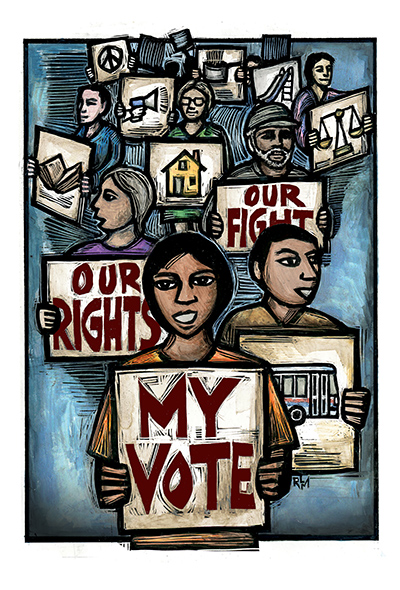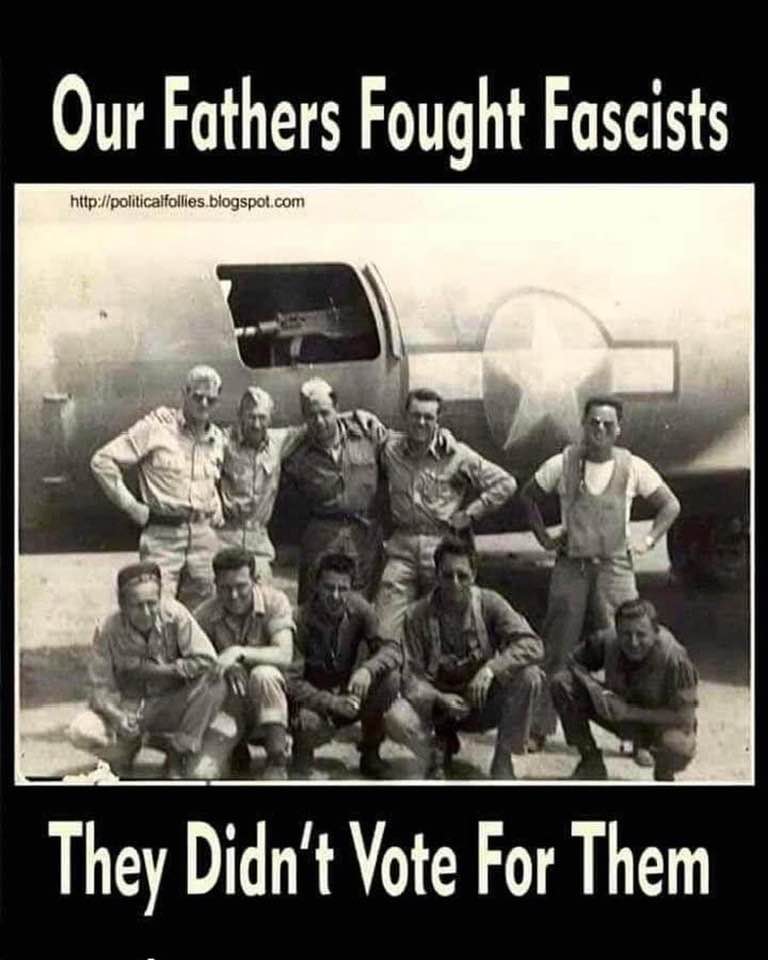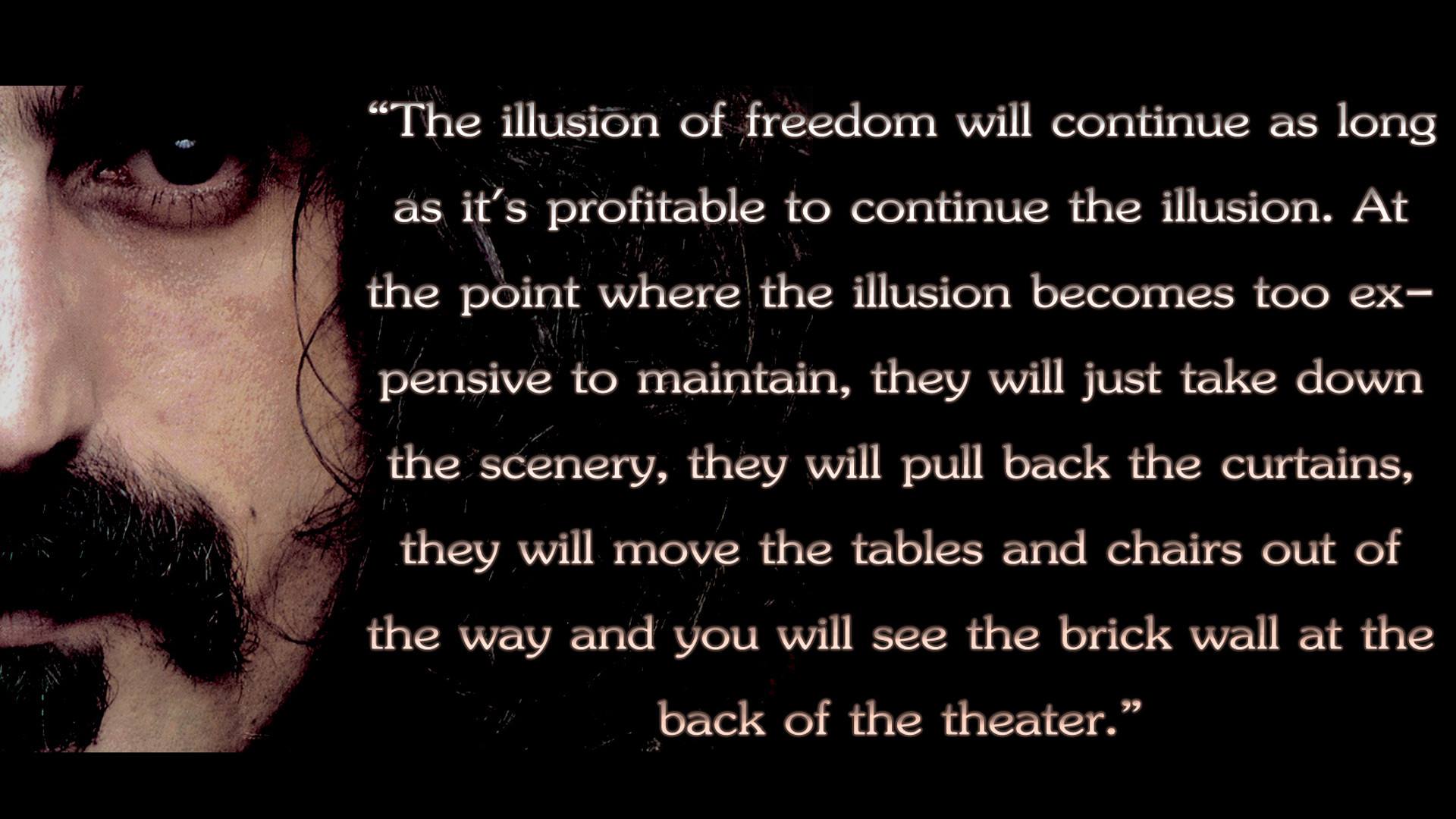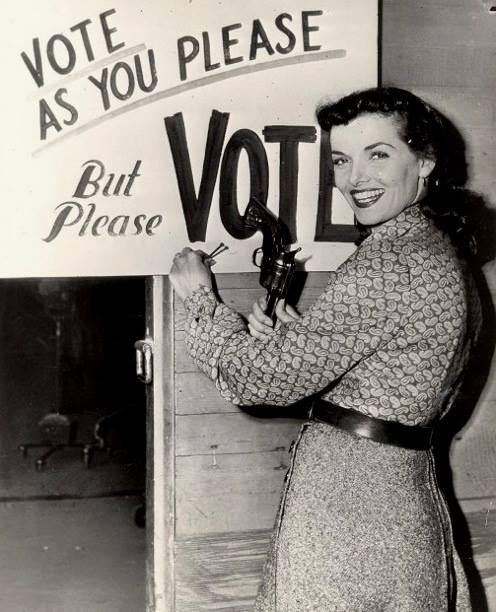Blog
Arturo Sandoval (born November 6, 1949) is a Cuban-American jazz trumpeter, pianist, timbalero, and composer. While living in his native Cuba, Sandoval was influenced by jazz musicians Charlie Parker, Clifford Brown, and Dizzy Gillespie. In 1977 he met Gillespie, who became his friend and mentor and helped him defect from Cuba while on tour with the United Nations Orchestra. Sandoval became an American naturalized citizen in 1998. His life was the subject of the film For Love or Country: The Arturo Sandoval Story (2000) starring Andy García.
Sandoval has won 10 Grammy Awards, Billboard Awards and one Emmy Award. He performed at the White House[1] and at the Super Bowl (1995).
more...Douglas Wayne Sahm (November 6, 1941 – November 18, 1999) was an American musician, singer-songwriter, and multi-instrumentalist from San Antonio, Texas. He is regarded as a key Tex-Mex music and Texan Music performer. San Antonio’s conjuntoand blues and later the hippie scene of San Francisco helped create his blend of music, with which he found success performing in 1970s Austin, Texas.
He made his recording debut as “Little Doug” in 1955. In 1965, Huey P. Meauxproduced Sahm and the Sir Douglas Quintet’s “She’s About a Mover.” Atlantic Recordssigned Sahm and released his debut solo album Doug Sahm and Band in 1973. In 1989, Sahm formed the supergroup the Texas Tornados with fellow Tex-Mex musicians Augie Meyers, Freddy Fender and Flaco Jiménez. The Texas Tornados toured successfully, and one of their releases earned a Grammy Award. In 1999, Sahm died during a vacation trip.
more...John Philip Sousa ( November 6, 1854 – March 6, 1932) was an American composer and conductor of the late Romantic era known primarily for American military marches. He is known as “The March King” or the “American March King”, to distinguish him from his British counterpart Kenneth J. Alford. Among Sousa’s best-known marches are “The Stars and Stripes Forever” (National March of the United States of America), “Semper Fidelis” (official march of the United States Marine Corps), “The Liberty Bell“, “The Thunderer“, and “The Washington Post“.
Sousa began his career playing violin and studying music theory and composition under John Esputa and George Felix Benkert. Sousa’s father enlisted him in the United States Marine Band as an apprentice in 1868. Sousa left the band in 1875, and over the next five years, he performed as a violinist and learned to conduct. In 1880, Sousa rejoined the Marine Band and served there for 12 years as director, after which he was hired to conduct a band organized by David Blakely, P.S. Gilmore‘s former agent. Blakely wanted to compete with Gilmore. From 1880 until his death, Sousa focused exclusively on conducting and writing music. He aided in the development of the sousaphone, a large brass instrument similar to the helicon and tuba.
Upon the United States joining World War I, Sousa was awarded a wartime commission of lieutenant to lead the Naval Reserve Band in Illinois. He then returned to conduct the Sousa Band until his death in 1932. In the 1920s, Sousa was promoted to the permanent rank of lieutenant commander in the naval reserve.
more...
The Great Nebula in Orion, an immense, nearby starbirth region, is probably the most famous of all astronomical nebulas. Here, glowing gas surrounds hot young stars at the edge of an immense interstellar molecular cloudonly 1500 light-years away. In the featured deep image in assigned colors highlighted by emission in oxygen and hydrogen, wisps and sheets of dust and gas are particularly evident. The Great Nebula in Orion can be found with the unaided eye near the easily identifiable belt of three stars in the popular constellation Orion. In addition to housing a bright open cluster of stars known as the Trapezium, the Orion Nebula contains many stellar nurseries. These nurseries contain much hydrogen gas, hot young stars, proplyds, and stellar jets spewing material at high speeds. Also known as M42, the Orion Nebula spans about 40 light years and is located in the same spiral arm of our Galaxy as the Sun.
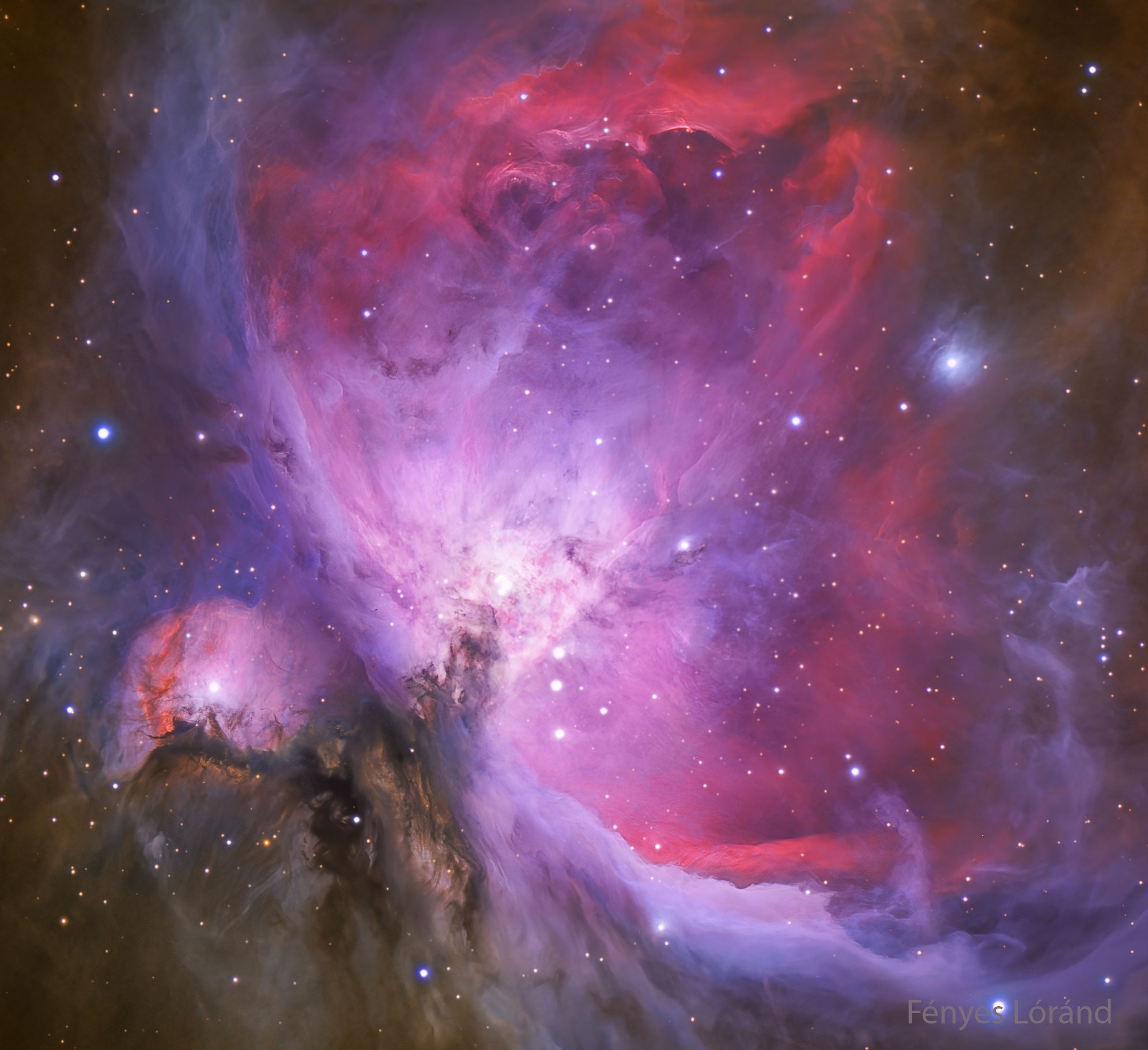
more...
Ingram Cecil Connor III (November 5, 1946 – September 19, 1973), known professionally as Gram Parsons, was an American singer, songwriter, guitarist, and pianist. He recorded as a solo artist and with the International Submarine Band, the Byrds, and the Flying Burrito Brothers, popularizing what he called “Cosmic American Music”, a hybrid of country, rhythm and blues, soul, folk, and rock.
Parsons was born in Winter Haven, Florida, and developed an interest in country music while attending Harvard University. He founded the International Submarine Band in 1966, but the group disbanded prior to the 1968 release of its debut album, Safe at Home. Parsons joined the Byrds in early 1968 and played a pivotal role in the making of the Sweetheart of the Rodeo album, a pioneering country rock album and a seminal progressive country recording. After leaving the group in late 1968, Parsons and fellow Byrd Chris Hillman formed The Flying Burrito Brothers in 1969; the band released its debut, The Gilded Palace of Sin, the same year. The album was well received critically but failed commercially. After a sloppy cross-country tour, the band hastily recorded Burrito Deluxe. Parsons was fired from the band before the album’s release in early 1970. Parsons spent the first half of 1971 with Keith Richards of the Rolling Stones, living in his French villa Nellcôte during the recording sessions for Exile on Main Street, though he contributed very little to the recording process itself. After traveling around Britain with friends in late 1971, he was treated for heroin addiction and returned to the U.S., where he was introduced to Emmylou Harris, who assisted him on vocals for his first solo record, GP, released in 1973. Although the record received enthusiastic reviews, it failed to chart. His health deteriorated due to several years of drug abuse, foreshadowing his death from a toxic combination of morphine and alcohol in 1973 at the age of 26. A posthumous solo album, Grievous Angel, peaked at number 195 on the Billboard chart.
Parsons’s relatively short career was described by AllMusic as “enormously influential” for country and rock, “blending the two genres to the point that they became indistinguishable from each other.” He has been credited with helping to found the country rock and alt-country genres. His posthumous honors include the Americana Music Association “President’s Award” for 2003 and a ranking at No. 87 on Rolling Stone‘s list of the “100 Greatest Artists of All Time. During the trip, Parsons often retreated to the desert, while the group visited bars in the nearby hamlet of Yucca Valley on both nights of their stay. Parsons consumed large amounts of alcohol and barbiturates. On September 18, Martin drove back to Los Angeles to resupply the group with marijuana. That night, after challenging Fisher and McElroy to drink with him (Fisher disliked alcohol and McElroy was recovering from a bout of hepatitis), he said, “I’ll drink for the three of us,” and proceeded to drink six double tequilas. They then returned to the Joshua Tree Inn, where Parsons purchased morphine from an unknown young woman. After being injected by her in room #1, he overdosed. Fisher gave Parsons an ice-cube suppository, and later, a cold shower. Instead of moving Parsons around the room, she put him to bed in room #8 and went out to buy coffee in the hope of reviving him, leaving McElroy to stand guard. As his respirations became irregular and later ceased, McElroy attempted resuscitation. Her efforts failed and Fisher, watching from outside, was visibly alarmed. After further failed attempts, they decided to call an ambulance. Parsons was declared dead on arrival at Yucca Valley Hospital at 12:15 a.m. on September 19, 1973, in Yucca Valley. The official cause of death was an overdose of morphine and alcohol.
Before his death, Parsons said he wanted his body cremated at Joshua Tree and his ashes spread over Cap Rock, a prominent natural feature there. However, Parsons’ stepfather Bob organized a private ceremony back in New Orleans and neglected to invite any of his friends from the music industry. Two accounts state that Bob Parsons stood to inherit Gram’s share of his grandfather’s estate if he could prove that Gram was a resident of Louisiana, explaining his eagerness to have him buried there.
To fulfill Parsons’ funeral wishes, Kaufman and a friend stole his body from Los Angeles International Airport and in a borrowed hearse, they drove it to Joshua Tree. Upon reaching the Cap Rock section of the park, they attempted to cremate Parsons’ body by pouring five gallons of gasoline into the open coffin and throwing a lit match inside; what resulted was an enormous fireball.
more...Arthur Ira Garfunkel (born November 5, 1941) is an American singer, actor and poet who is best known for his partnership with Paul Simon in the folk rock duo Simon & Garfunkel. Born in Forest Hills, Queens, New York, Garfunkel became acquainted with Simon through an elementary school play, a production of Alice in Wonderland. Their combined presence in music began in the 1950s, and throughout the 1960s the duo of Simon & Garfunkel achieved great chart success with tracks such as “The Sound of Silence“, “Mrs. Robinson” (written for the 1967 film The Graduate), “Scarborough Fair“, “The Boxer” and “Bridge over Troubled Water“. The latter song’s title also served as the name of Simon & Garfunkel’s final album in 1970. Simon & Garfunkel split for personal reasons, but the pair have occasionally reunited in the years since. Both men experienced success in solo careers in the years following the duo’s breakup.
Highlights of Garfunkel’s solo music career include one top 10 hit, three top 20 hits, six top 40 hits, 14 Adult Contemporary top 30 singles, five Adult Contemporary number ones, two UK number ones and a People’s Choice Award. Through his solo and collaborative work, Garfunkel has earned eight Grammy Awards, including a Lifetime Achievement Award. In 1990, he and Simon were inducted into the Rock and Roll Hall of Fame. In 2008, Garfunkel was ranked 86th in Rolling Stone magazine’s list of the 100 Greatest Singers of All Time.
more...Neil Cowley (born 5 November 1972) is an English contemporary pianist and composer. He has also released music as part of Fragile State, the Green Nuns of the Revolution, and the Neil Cowley Trio. With his trio, he appeared on Later… with Jools Holland in April 2008 and won the 2007 BBC Jazz Award for best album for Displaced. In 2018, Cowley announced he was working on a new electronic focused solo project.[2] In 2020, Cowley announced his debut solo album, Hall of Mirrors.
more...Willie Love Jr. (November 4, 1906 – August 19, 1953) was an American Delta bluespianist. He is best known for his association with and accompaniment of Sonny Boy Williamson II.
Love was born in Duncan, Mississippi. In 1942, he met Sonny Boy Williamson II in Greenville, Mississippi. They played regularly together at juke joints throughout the Mississippi Delta. Love was influenced by the piano playing of Leroy Carr and was adept at both standard blues and boogie-woogie styling.
In 1947 Charley Booker moved to Greenville, where he worked with Love. Two years later, Oliver Sain also relocated to Greenville to join his stepfather, Love, as the drummer in a band fronted by Williamson. When Williamson recorded for Trumpet Records in March 1951, Love played the piano on the recordings. Trumpet’s owner, Lillian McMurray, had Love return the following month and again in July 1951, when he recorded his best-known song, “Everybody’s Fishing”, which he wrote. Love played piano and sang, with guitar accompaniment by Elmore James and Joe Willie Wilkins. His backing band was known as the Three Aces. A studio session in December 1951 had Love backed by Little Milton (guitar), T.J. Green (fiddle), and Junior Blackman (drums). In his teenage years, Eddie Shaw played tenor saxophone with both Milton and Love.
more...This Hubble Picture of the week features NGC 1672, a barred spiral galaxy located 49 million light-years from Earth in the constellation Dorado. This galaxy is a multi-talented light show, showing off an impressive array of different celestial lights. Like any spiral galaxy, its disc is filled with billions of shining stars that give it a beautiful glow. Along its two large arms, bubbles of hydrogen gas are made to shine a striking red light by the powerful radiation of newly-forming stars within. Near to the centre lie some particularly spectacular stars; newly-formed and extremely hot, they are embedded in a ring of hot gas and are emitting powerful X-rays. And in the very centre sits an even more brilliant source of X-rays, an active galactic nucleus created by the heated accretion disc around NGC 1672’s supermassive black hole; this makes NGC 1672 a Seyfert galaxy.
But a highlight of this image is the most fleeting and temporary of these lights: supernova SN 2017GAX, visible in just one of the six Hubble images that make up this composite image. This was a Type I supernova caused by the core-collapse and subsequent explosion of a giant star, going from invisibility to a new light in the sky in just a matter of days. In that image from later that year, the supernova is already fading, and so is only just visible here as a small green dot, just below the crook of the spiral arm on the right side. In fact this was on purpose, as astronomers wanted to look for any companion star that the supernova progenitor may have had — something impossible to spot beside a live supernova! For a closer look at the supernova’s appearance, you can compare the two images with this slider tool.
Recently, NGC 1672 was also among a crop of galaxies imaged with the NASA/ESA/CSA James Webb Space Telescope, showing the ring of gas and the structure of dust in its spiral arms. A Hubble image was also released previously in 2007.
[Image Description: A spiral galaxy with an oval-shaped disc. Two large arms curve out away from the ends of the disc. The arms are traced by bright pink patches where stars are forming and by dark reddish threads of dust. The core is very bright and star-filled. Some large stars appear in front of the galaxy. Directly under the point where the right arm joins the disc, a fading supernova is visible as a green dot.]
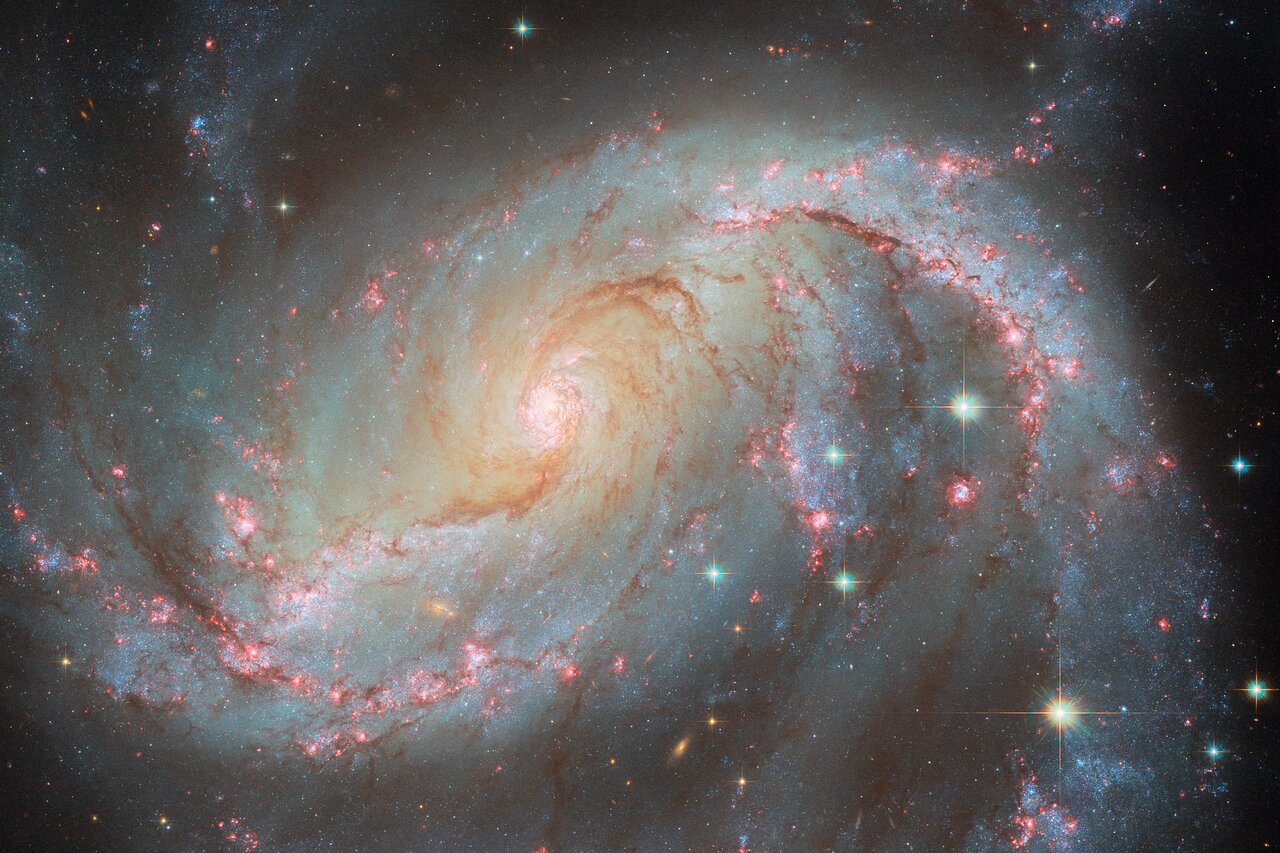
Jeffrey H. Lorber (born November 4, 1952 Philadelphia, PA ) is an American keyboardist, composer, and record producer. After six previous nominations, Lorber won his first Grammy Award on January 28, 2018 for Best Contemporary Instrumental Album for Prototype by his band the Jeff Lorber Fusion.
Many of his songs have appeared on the Weather Channel‘s Local on the 8s segments and on the channel’s compilation albums, The Weather Channel Presents: The Best of Smooth Jazz and The Weather Channel Presents: Smooth Jazz II. He was nominated for a Grammy Award for his album He Had a Hat (Blue Note, 2007).
more...
Quincy Jones, a titan of American entertainment who worked with stars from Frank Sinatra to Michael Jackson and Will Smith, has died aged 91. Jones’ publicist, Arnold Robinson, said he died on Sunday night at his home in the Bel Air section of Los Angeles, surrounded by his family.
“Tonight, with full but broken hearts, we must share the news of our father and brother Quincy Jones’ passing,” the family said in a statement. “And although this is an incredible loss for our family, we celebrate the great life that he lived and know there will never be another like him.”
Jones was arguably the most versatile pop cultural figure of the 20th century, perhaps best known for producing the albums Off the Wall, Thriller and Bad for Michael Jackson in the 1980s, which made the singer the biggest pop star of all time. Jones also produced music for Sinatra, Aretha Franklin, Donna Summer and many others.
Quincy Delight Jones Jr. (March 14, 1933 – November 3, 2024 Chicago) was an American record producer, songwriter, composer, arranger, and producer. His career spanned 70 years, with 28 Grammy Awards won out of 80 nominations, and a Grammy Legend Award in 1992.
Jones came to prominence in the 1950s as a jazz arranger and conductor before working on pop music and film scores. He moved easily between genres, producing pop hit records for Lesley Gore in the early 1960s (including “It’s My Party“) and serving as an arranger and conductor for several collaborations between the jazz artists Frank Sinatra and Count Basie. In 1968, Jones became the first African American to be nominated for an Academy Award for Best Original Song for “The Eyes of Love” from the film Banning. Jones was also nominated for an Academy Award for Best Original Score for his work on the 1967 film In Cold Blood, making him the first African American to be nominated twice in the same year. Jones produced three of the most successful albums by pop star Michael Jackson: Off the Wall (1979), Thriller (1982), and Bad(1987). In 1985, Jones produced and conducted the charity song “We Are the World“, which raised funds for victims of famine in Ethiopia.
In 1971, Jones became the first African American to be the musical director and conductor of the Academy Awards. In 1995, he was the first African American to receive the academy’s Jean Hersholt Humanitarian Award. He is tied with sound designer Willie D. Burton as the second most Oscar-nominated African American, with seven nominations each. In 2013, Jones was inducted into the Rock & Roll Hall of Fame in the Ahmet Ertegun Award category. He was named one of the most influential jazz musicians of the 20th century by Time.
more...
Lawrence Benjamin Bunker (November 4, 1928 – March 8, 2005 Long Beach, CA) was an American jazz drummer, vibraphonist, and percussionist. A member of the Bill Evans Trio in the mid-1960s, he also played timpani with the Los Angeles Philharmonic orchestra.
A dependable and in-demand studio drummer and vibist, Bunker achieved particular distinction by recording with Billie Holiday, Ella Fitzgerald, Peggy Lee, Diana Krall, and many other jazz greats. In 1952, he was the drummer in one of Art Pepper‘s first groups. In 1953 and 1954, Bunker played drums in some of the earliest of Gerry Mulligan‘s groups. From 1963 to 1965, he was, intermittently, the drummer in the Bill Evans trio. His work in movie soundtracks spanned over fifty years, from Stalag 17 (1953) and Glengarry Glen Ross (1992) to The Incredibles (2004), and included soundtracks by John Williams, Henry Mancini, Quincy Jones, Miklós Rózsa, Jerry Goldsmith, Johnny Mandel, Lalo Schifrin and many other composers.
Bunker died of complications of a stroke in Los Angeles at age 76.
more...More Posts
- Cosmo M35
- José Melis
- Mildred Bailey
- Dexter Gordon
- Ali Farka Touré
- Daily Roots Ansel Collins
- Medical Negligence
- United We Must Stand
- 160 Years of Hatred & Ignorance
- The Drummers Path
- Mitch Ryder
- Cosmo NGC 6505 Einstein Ring
- Arsène Souffriau
- Dave Pell
- Johnny Cash
- Fats Domino
- World Music Dogo du Togo & The Alagaa Beat Band
- Daily Roots King Tubby
- Mississippi Big Melt
- Echos of Freedom by MLK
